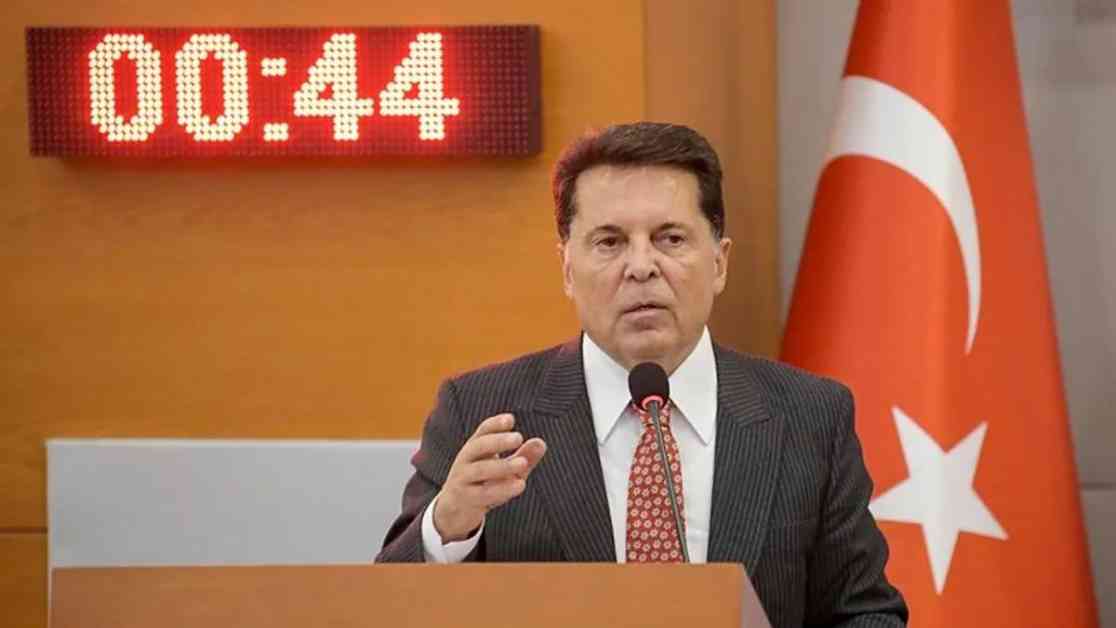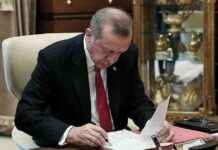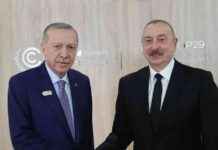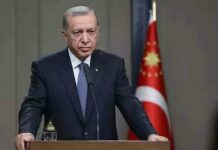Ahmet Özer, the Mayor of Esenyurt from the opposition Republican People’s Party (CHP), has been detained on charges of being a member of the PKK/KCK armed terrorist organization. What has raised eyebrows is the fact that no appeal has been made for his detention for the past 5 days. The CHP leadership has been criticized for turning the detention of Özer into a political show, failing to appoint a lawyer for him, and not appealing his detention. Instead, they have been gathering at the Istanbul Courthouse and calling for protests in Esenyurt. This move has been seen as an attempt to undermine the fight against terrorism for political gain.
The Istanbul Chief Public Prosecutor’s Office had initiated an investigation into Özer on charges of membership in a terrorist organization and subsequently arrested him for being a member of the PKK/KCK armed terrorist group. The grounds for his detention included his involvement in various activities that demonstrated a consistent, intense, and diverse relationship with the organization’s hierarchy.
In response to Özer’s detention, the CHP Central Executive Committee held an emergency meeting, during which Istanbul Provincial Chairman Özgür Çelik called for a gathering at the Istanbul Courthouse. This call for protests has sparked controversy and raised questions about the CHP’s motives in handling the situation.
The CHP’s failure to appeal Özer’s detention has been met with criticism from various quarters, with many questioning the party’s commitment to the rule of law and the fight against terrorism. The party’s actions have been seen as a deliberate attempt to obstruct efforts to combat terrorism, particularly in light of their opposition to the appointment of trustees in municipalities with suspected ties to terrorist organizations.
Subheadings:
1. The Controversy Surrounding Ahmet Özer’s Detention
2. CHP’s Response and Criticisms
3. Implications for the Fight Against Terrorism
The Controversy Surrounding Ahmet Özer’s Detention
The detention of Ahmet Özer, the Mayor of Esenyurt, on charges of being a member of the PKK/KCK terrorist organization has stirred controversy in Turkey. The decision not to appeal his detention has raised questions about the CHP’s handling of the situation and its commitment to the rule of law.
Özer’s arrest came after an investigation by the Istanbul Chief Public Prosecutor’s Office, which found evidence linking him to the terrorist group. The grounds for his detention highlighted his alleged involvement in a range of activities that indicated a close relationship with the organization’s hierarchy.
The lack of an appeal for Özer’s detention has been a point of contention, with critics accusing the CHP of politicizing the issue and prioritizing its own interests over the rule of law. The party’s decision to call for protests instead of pursuing legal avenues has further fueled speculation about its motives.
CHP’s Response and Criticisms
The CHP’s response to Ahmet Özer’s detention has been met with criticism from various quarters, including legal experts, civil society organizations, and political commentators. The party’s failure to appoint a lawyer for Özer and its decision not to appeal his detention have been seen as a departure from standard legal procedures.
Instead of following the legal process, the CHP has chosen to escalate the situation by calling for protests and demonstrations. This move has been interpreted as an attempt to use Özer’s detention for political gain, rather than focusing on the legal aspects of the case.
Critics have raised concerns about the implications of the CHP’s actions for the rule of law and the fight against terrorism in Turkey. By undermining efforts to combat terrorism and showing a lack of commitment to the legal process, the party has drawn criticism for its handling of the situation.
Implications for the Fight Against Terrorism
The controversy surrounding Ahmet Özer’s detention and the CHP’s response have broader implications for the fight against terrorism in Turkey. The party’s actions have been seen as undermining efforts to combat terrorism and challenging the rule of law.
By politicizing Özer’s detention and failing to appeal his arrest, the CHP has sent a troubling message about its commitment to the fight against terrorism. The party’s decision to prioritize political interests over legal procedures has raised questions about its role in upholding the rule of law.
The CHP’s actions have also sparked debate about the role of political parties in the fight against terrorism. By choosing to protest instead of pursuing legal avenues, the party has been criticized for hindering efforts to hold individuals accountable for their alleged ties to terrorist organizations.
In conclusion, the controversy surrounding Ahmet Özer’s detention and the CHP’s response highlight the challenges facing Turkey in its fight against terrorism. The need for a clear commitment to the rule of law and the legal process is essential to ensure that individuals are held accountable for their actions without political interference.











